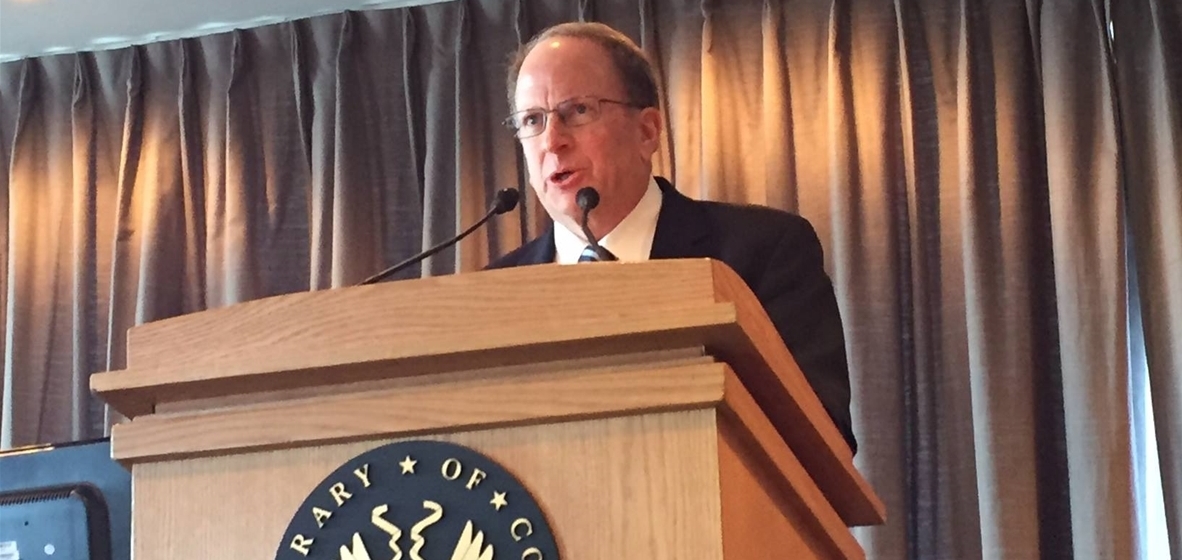Reynolds School of Journalism Dean Al Stavitsky recently attended meetings at the Library of Congress in Washington D.C. dedicated to preserving the history of radio.
The conference was organized by the Library's Radio Preservation Task Force (RPTF), comprised of scholars, curators and archivists with extensive experience in radio broadcasting.
Stavitsky was named to the task force as a Distinguished Scholar upon the group's inception in May 2014. The RPTF has spent much of the last two years surveying libraries and archives throughout the nation to assess how much radio content has been preserved. During the task force's recent meeting in Washington D.C., members reviewed their findings and began discussing strategies for the future.
According to Stavitsky, the advent of television and the Internet has made radio somewhat of a "forgotten medium." He noted that unlike the attention paid to preservation of film and television, the preservation of radio programming is scattered at best. Regardless, Stavitsky considered the preservation of radio to be important, noting the medium's historical significance.
"It was the first broadcast medium and decisions made about radio policy, programming and format shaped how television and subsequent media developed," Stavitsky said. "In addition, radio is a carrier of history. Consider the famous broadcast of the Hindenburg explosion and recordings of presidents and historical figures and events."
Stavitsky and his RPTF colleagues uncovered forgotten radio recordings in varying states of organization. The RPTF came upon a trove of four decades' worth of Basque radio programming in a Boise archive, while also finding several hundred unlabeled cassettes strewn in a cardboard box at a radio station.
Moving forward, Stavitsky noted that radio preservation is a complex and long-term process. According to Stavitsky, raising awareness for radio preservation in the broadcast industry and allocating funds for the digitization of antiquated recordings would be valuable.
For Stavitsky, preserving radio history is akin to preserving his own broadcasting experiences. Stavitsky began working in radio at a young age and immediately developed a passion for the field.
"I started working in radio as a high school student and it was my first love," Stavitsky said. "It's long been a passion of mine: I broadcast everything from country music to college hockey to daily news reporting. Being able to be engaged with radio again and to give back to the field is very rewarding."
Reynolds School students interested in following Stavitsky's path in radio broadcasting have several outlets to do so throughout campus.
In addition to the radio and podcasting courses currently available in the Reynolds School curriculum, the RSJ's Nevada Media Alliance, the Next Generation Radio Nevada boot camp in partnership with NPR, and the student-run Wolf Pack Radio offer students the opportunity to explore all facets of the field.
"I think we're among the nation's leading programs in preparing students for the evolving world of audio," Stavitsky said.












